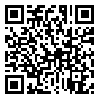Volume 11, Issue 3 (Summer- In Press 2025)
JCCNC 2025, 11(3): 0-0 |
Back to browse issues page
Download citation:
BibTeX | RIS | EndNote | Medlars | ProCite | Reference Manager | RefWorks
Send citation to:



BibTeX | RIS | EndNote | Medlars | ProCite | Reference Manager | RefWorks
Send citation to:
Soriano G, Cruz C A G, Delos Reyes D C, Eduardo B P, Gabriel G M, Calong Calong K. Knowledge, Attitude, and Self-Efficacy towards Pain Management among Filipino Nurses. JCCNC 2025; 11 (3)
URL: http://jccnc.iums.ac.ir/article-1-720-en.html
URL: http://jccnc.iums.ac.ir/article-1-720-en.html
Gil Soriano *1 
 , Charles Aaron Gil Cruz
, Charles Aaron Gil Cruz 
 , Danielle Chloe Delos Reyes
, Danielle Chloe Delos Reyes 
 , Brian Paulo Eduardo
, Brian Paulo Eduardo 
 , Genesis Matthew Gabriel
, Genesis Matthew Gabriel 
 , Kathyrine Calong Calong2
, Kathyrine Calong Calong2 


 , Charles Aaron Gil Cruz
, Charles Aaron Gil Cruz 
 , Danielle Chloe Delos Reyes
, Danielle Chloe Delos Reyes 
 , Brian Paulo Eduardo
, Brian Paulo Eduardo 
 , Genesis Matthew Gabriel
, Genesis Matthew Gabriel 
 , Kathyrine Calong Calong2
, Kathyrine Calong Calong2 

1- Department of Nursing, College of Allied Health, National University, Manila, Philippines. , gil.p.soriano@gmail.com
2- College of Nursing, San Beda University, Manila.
2- College of Nursing, San Beda University, Manila.
Abstract: (63 Views)
Background: Knowledge, attitude, and pain management competence and confidence (self-efficacy) are three significant variables influencing how nurses manage pain and the degree of relief offered to patients; however, research has yet to investigate these variables among Filipino nurses. This study aims to determine the relationship between knowledge, attitude, and self-efficacy in pain management among Filipino nurses.
Methods: The study is a predictive correlational inquiry with a convenience sample of 138 Filipino nurses in selected Level 3 hospitals in Metro Manila. Data were collected from January to March 2022 using the Pain Knowledge and Attitude (PAK) questionnaire and Pain Management Self-Efficacy Questionnaire (PMSEQ). Frequency, percentage, mean, standard deviation, Pearson's r correlation and backward stepwise linear regression were used to analyze the gathered data. IBM SPSS Version 21 for Windows was used for the analysis. The significance level was set at P<0.05.
Results: The participants had difficulty responding to the PAK Questionnaire, with scores of 0-9 (2.49 ± 2.11). Meanwhile, they scored well on the subscale "Evaluative Pain Management Self-Efficacy," ranging from 12-20 (17.19 ± 2.41). Their total Pain Management Self-Efficacy score ranges from 59-100 (85.45 ± 10.48). Significant relationships were found between pain knowledge and attitude and comprehensive pain management self-efficacy (r=0.214; p=0.012), evaluative pain management self-efficacy (r=0.176; p=0.039), and total pain management self-efficacy score (r=0.209; p=0.014). The regression analysis revealed that Comprehensive Pain Management Self-Efficacy and Educational Attainment significantly predict Pain Knowledge and Attitude. The model was statistically significant (F (2, 135) = 5.812. p=0.004) and accounted for 79% of the variance (R²=0.79), indicating a strong predictive relationship. However, no significant relationship was noted between pain knowledge and attitude and supplemental pain management self-efficacy (r=0.149; p=0.082).
Conclusion: Pain management needs to be emphasized among Filipino nurses as it is commonly practiced in the clinical setting. Further, it is recommended that regular pain management training programs be implemented to enhance their skills and improve patient care.
Methods: The study is a predictive correlational inquiry with a convenience sample of 138 Filipino nurses in selected Level 3 hospitals in Metro Manila. Data were collected from January to March 2022 using the Pain Knowledge and Attitude (PAK) questionnaire and Pain Management Self-Efficacy Questionnaire (PMSEQ). Frequency, percentage, mean, standard deviation, Pearson's r correlation and backward stepwise linear regression were used to analyze the gathered data. IBM SPSS Version 21 for Windows was used for the analysis. The significance level was set at P<0.05.
Results: The participants had difficulty responding to the PAK Questionnaire, with scores of 0-9 (2.49 ± 2.11). Meanwhile, they scored well on the subscale "Evaluative Pain Management Self-Efficacy," ranging from 12-20 (17.19 ± 2.41). Their total Pain Management Self-Efficacy score ranges from 59-100 (85.45 ± 10.48). Significant relationships were found between pain knowledge and attitude and comprehensive pain management self-efficacy (r=0.214; p=0.012), evaluative pain management self-efficacy (r=0.176; p=0.039), and total pain management self-efficacy score (r=0.209; p=0.014). The regression analysis revealed that Comprehensive Pain Management Self-Efficacy and Educational Attainment significantly predict Pain Knowledge and Attitude. The model was statistically significant (F (2, 135) = 5.812. p=0.004) and accounted for 79% of the variance (R²=0.79), indicating a strong predictive relationship. However, no significant relationship was noted between pain knowledge and attitude and supplemental pain management self-efficacy (r=0.149; p=0.082).
Conclusion: Pain management needs to be emphasized among Filipino nurses as it is commonly practiced in the clinical setting. Further, it is recommended that regular pain management training programs be implemented to enhance their skills and improve patient care.
Type of Study: Research |
Subject:
General
Received: 2024/11/10 | Accepted: 2025/04/5 | Published: 2025/08/18
Received: 2024/11/10 | Accepted: 2025/04/5 | Published: 2025/08/18
Send email to the article author
| Rights and permissions | |
 |
This work is licensed under a Creative Commons Attribution-NonCommercial 4.0 International License. |


